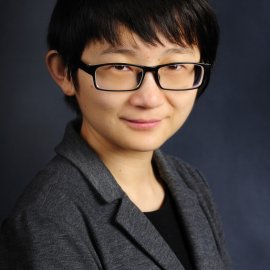Religion et Culture, Virginia Tech

Octobre 2020 à Juin 2021
Zhange Ni a obtenu son doctorat. en religion et littérature de la University of Chicago Divinity School (2009), et a travaillé comme chercheur associé et professeur adjoint invité au programme «Women’s Studies in Religion» à la Harvard Divinity School (2010-2011). Elle est actuellement professeure agrégée au Département de religion et culture de Virginia Tech. Son premier livre The Pagan Writes Back: When World Religion Meets World Literature (2015) propose une «critique païenne», une nouvelle stratégie de lecture qui tient compte des complexités et des contingences historiques des textes littéraires et remet en question les hypothèses chrétiennes et laïques concernant l'esthétique et l'herméneutique. Elle a écrit des articles sur la laïcité et l'édification de la religion dans la Chine du XXe siècle d'une part, sur la religion et la littérature populaire contemporaine dans l'Ouest euro-américain d'autre part. À Nantes IAS, elle rédigera son deuxième livre manuscrit Le culte de la fiction à l'ère d'Internet: la religion chinoise, la fantaisie en ligne et les aventures au-delà du capitalisme mondial.
De plus, Ni est une écrivaine d'œuvres créatives en Chine, ayant publié trois recueils de poésie, trois recueils d'essais et un roman.
"The Cult of Fiction in the Age of the Internet: Chinese Religion, Online Fantasy, and Adventures beyond Global Capitalism".
In this project, Ni studies internet-based fantasy novels in twenty-first-century China. She define fantasy as a branch of imaginative literature that reinvents magic/superstition, that is, “false,” “irrational” ideas and practices that are rooted in folk traditions around the world and stand in opposition to modern science and the liberal model of religion as interiorized, privatized, and depoliticized piety. In the wake of the translation of the modern Western discourses of science, religion, and superstition, Chinese fantasy first emerged in the form of martial arts fiction in the early twentieth century and was then suppressed by the anti-superstitious nation-state. In the late twentieth and early twenty-first centuries, Chinese fantasy has reemerged with a vengeance, thanks to the revival of Chinese religions, including what was formerly labelled superstitious, and the development of new media such as film, television, video games, and the internet. Among the vast ocean of fantasy novels, she singles out three subgenres to conduct textual analysis--xiuzhen (immortality cultivation), daomu (tomb-robbing), and danmei (homoerotic romance)—and argues that they engage with the messy reality of contemporary China and exemplify the postsocialist generation’s desire to orient themselves within the labyrinth of global capitalism and to quest for alternative imaginaries beyond the dominant order.